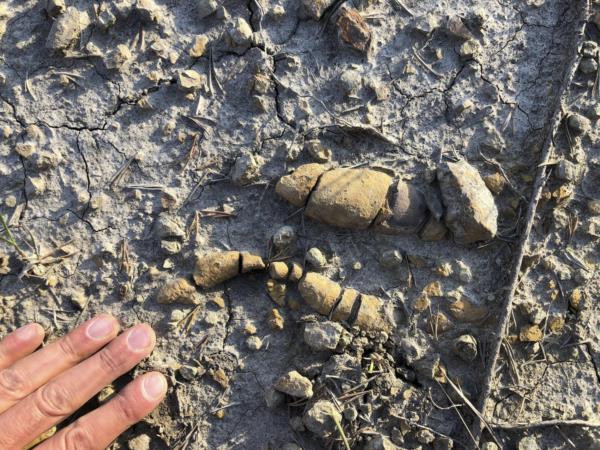
Scientists have reconstructed how dinosaurs came to dominate the Earth millions of years ago by analyzing fossilized feces and vomit samples from Poland. The study, published in the journal Nature, sheds light on the gradual evolution of dinosaurs over a span of 30 million years.
The research suggests that the rise of dinosaurs was not a sudden event but a result of various factors such as luck, skill, and climate conditions. The first dinosaurs displayed adaptability by consuming a diverse diet that included insects, fish, and plants.
As climate conditions changed, dinosaurs quickly adapted to new environments. For instance, plant-eating dinosaurs expanded their diets to include a wider variety of greens when wetter conditions led to the emergence of new plant species.
The study focused on analyzing hundreds of dinosaur droppings to understand the dietary habits of these ancient creatures 200 million years ago. Researchers found fish scales, insect remains, and bone fragments within the fossilized feces, providing valuable insights into the ecosystem of that era.




While the study was based on Polish fossils, scientists aim to compare their findings with fossil records from around the world to validate their conclusions. Fossilized feces, though often overlooked, serve as crucial sources of information for understanding prehistoric animals and their behaviors.
According to paleobiologists, studying ancient fecal matter can reveal intricate details about the diet and interactions of extinct species. Despite their unassuming appearance, fossilized feces contain delicate information that contributes to our understanding of ancient ecosystems.
Overall, the research highlights the importance of unconventional sources, such as fossilized feces, in reconstructing the evolutionary history of dinosaurs and their journey to dominance on Earth.







